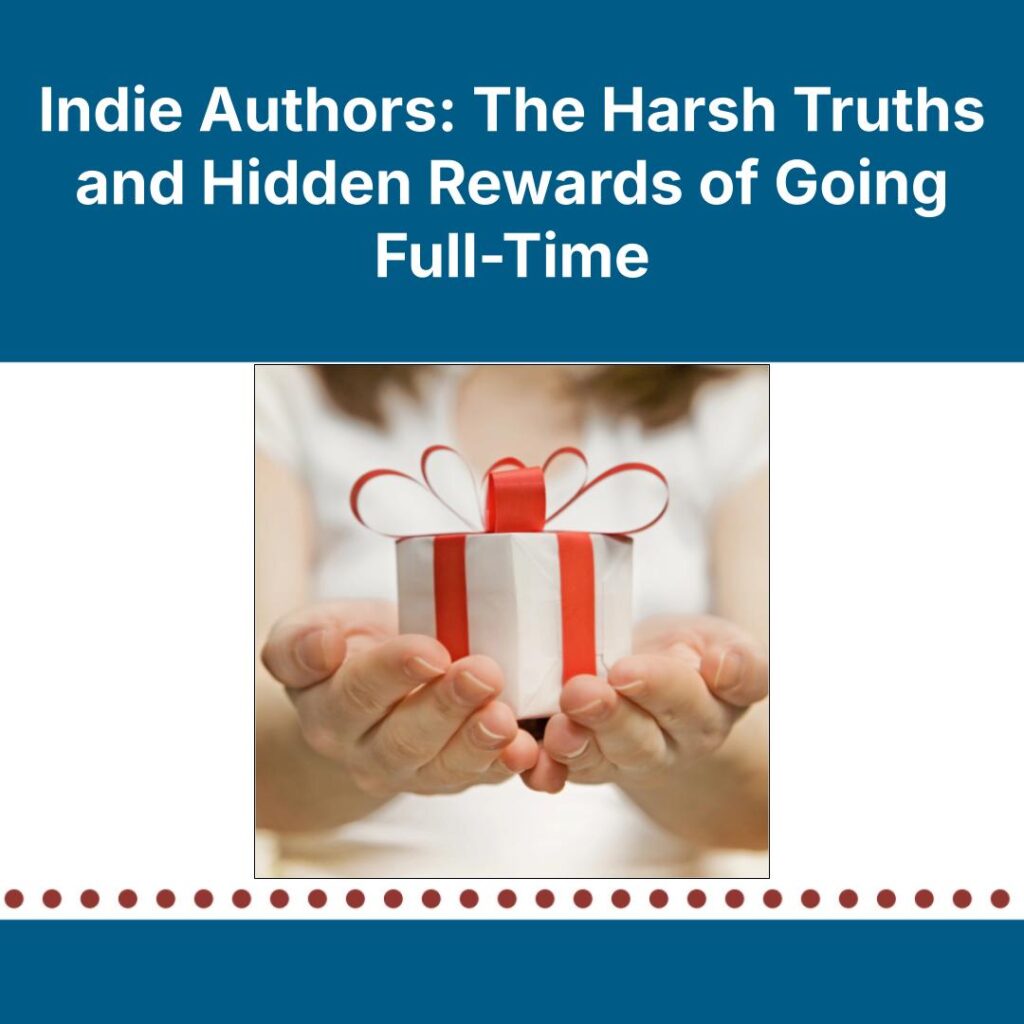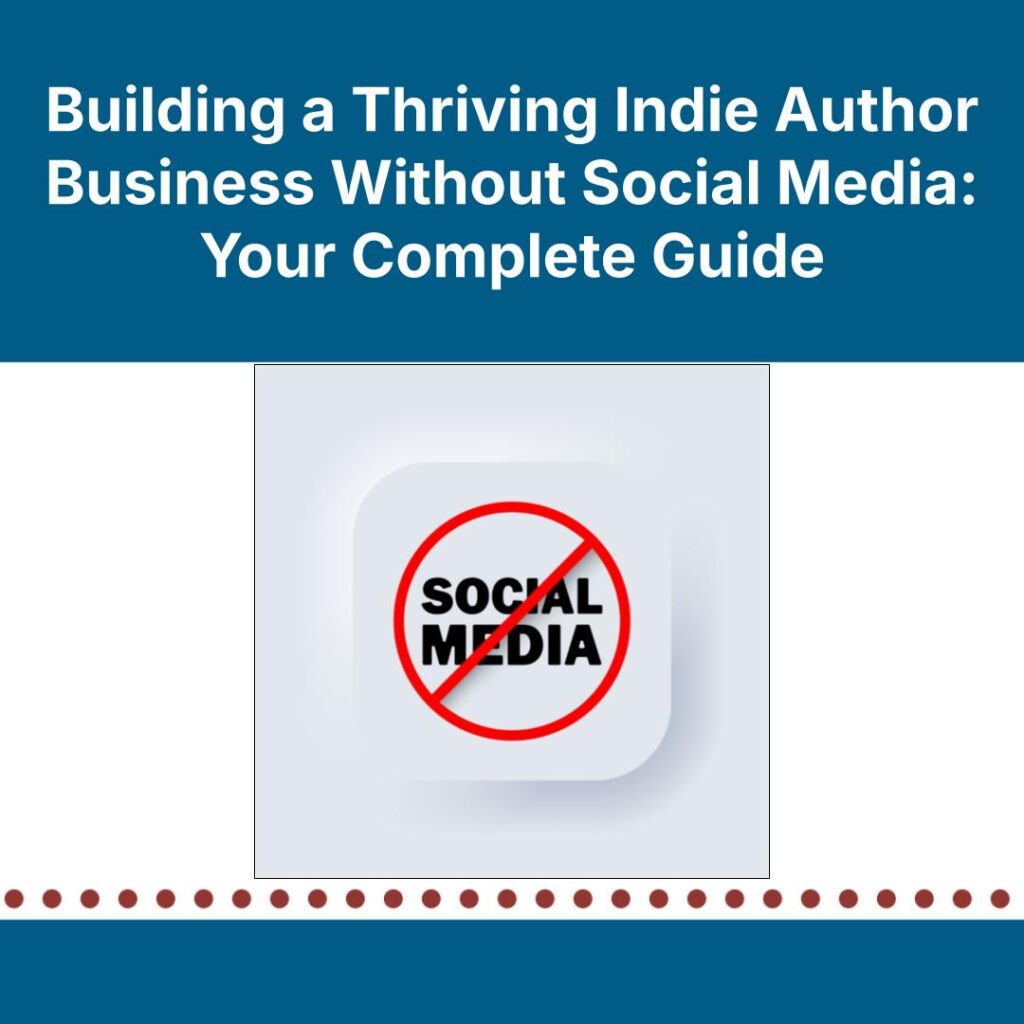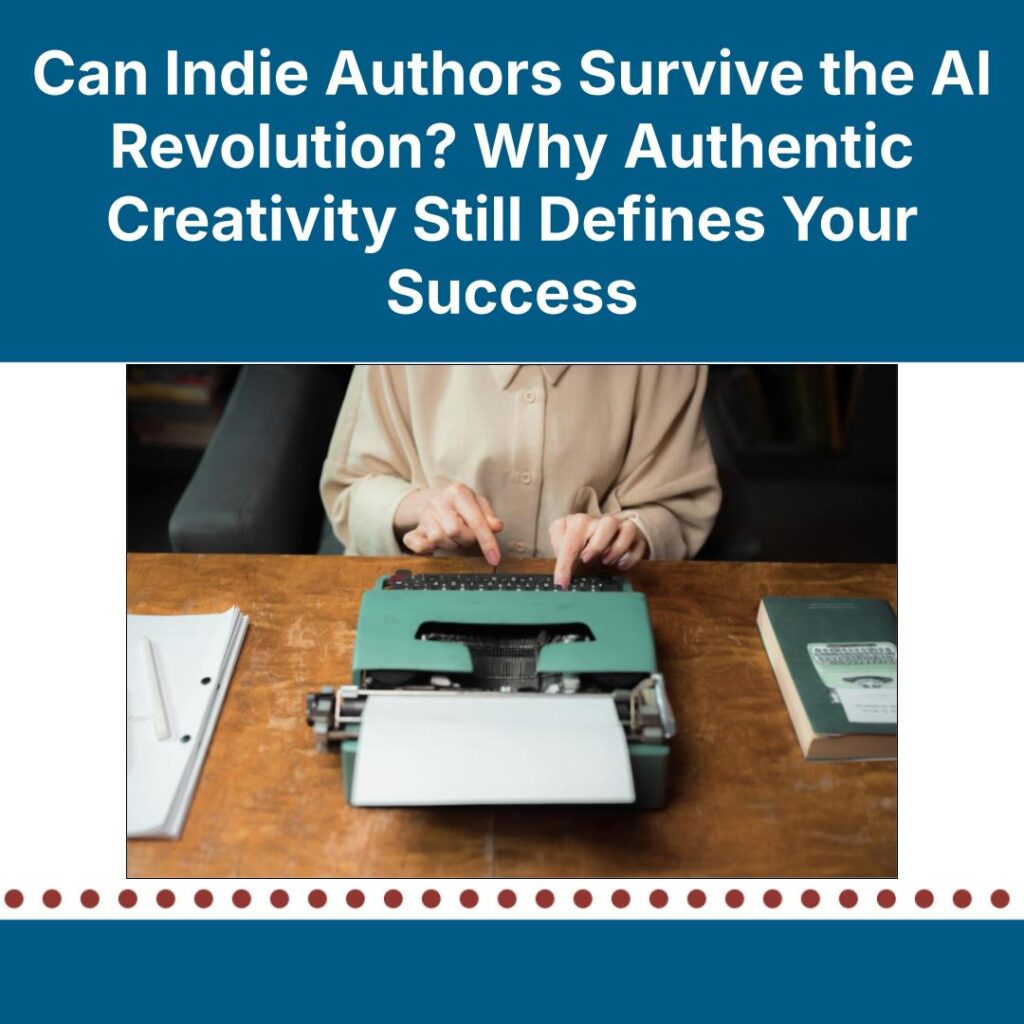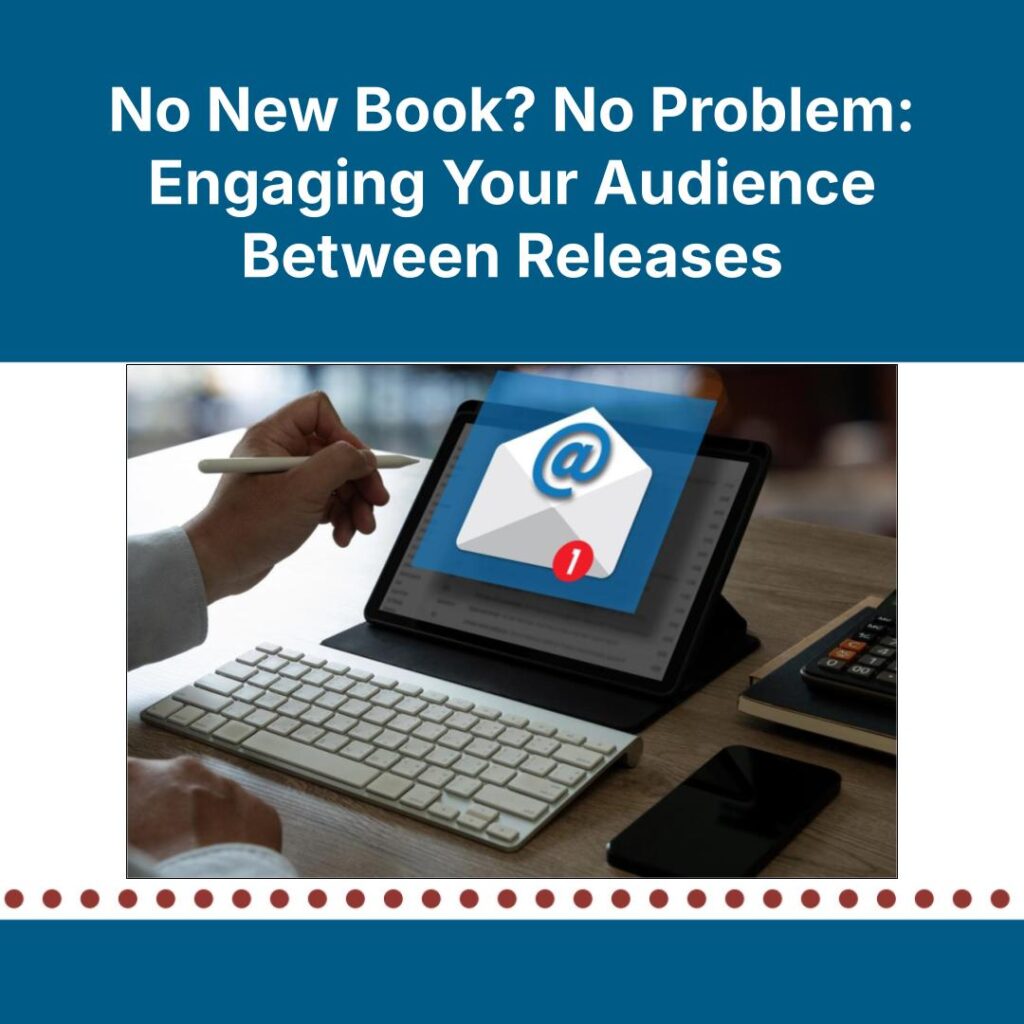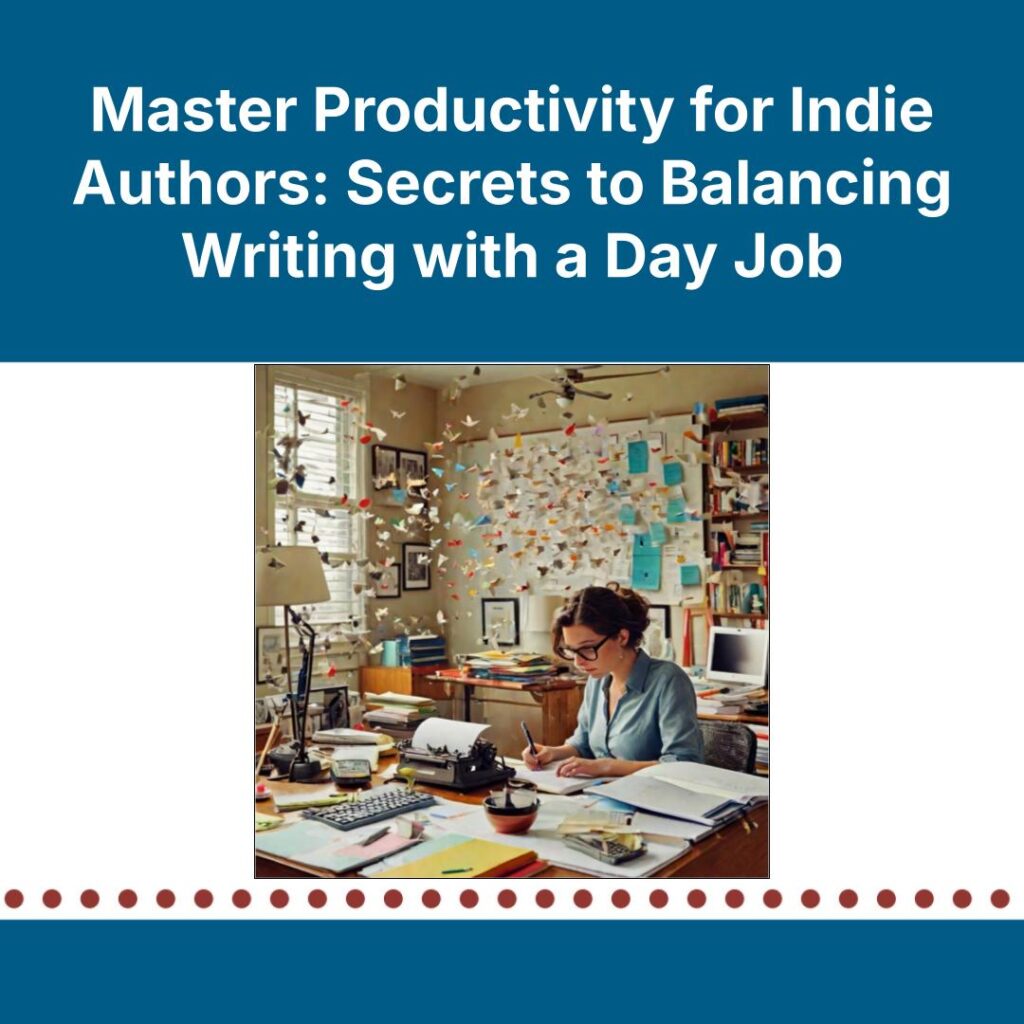Introducing Author Inklings
On Taking a Leap of Faith
Welcome, my pretties, to my new column.
“Where is our beloved Indie Annie?” I hear you cry. Well, last month, those who were paying attention will have noticed that our gorgeous agony aunt was rumored to have checked herself into a spa in the wilds of Yorkshire, England.
The truth is that others who believed our Indie Annie to be an AI-generated avatar forced her into hiding. These unfounded accusations hurt her feelings. Although she masked her true identity behind a cartoon persona, she was very human.
I know, because she was me.
When we began this magazine, I was a novice writer with only a couple of well-reviewed but slow-selling titles under my pen name. I wrote in my spare time. I had a demanding full-time job. Although writing consumed me, I considered myself an amateur.
So when I was invited to play this role of Indie Annie, I did so only on the condition that I remained incognito.
Times have changed. I have changed. And now I am making enough money to quit my day job. It took a leap of faith.
Don’t get me wrong. Being a full-time author is one of the most rewarding, creatively fulfilling things I’ve ever done—but it also nearly broke me. Emotionally. Mentally. Spiritually. Even my dog gave me side-eye at one point, as if to say, You quit your job for this?
For years, I wrote in snatched hours before breakfast, during lunch breaks, on weekends. Writing was my secret world, my escape from the stress of everyday life. But when I decided to take the leap and write full time, that world turned upside down.
The Emotional Hangover
Nobody talks about the existential crisis that hits the day you no longer have a boss, a schedule, or an office snack cupboard. Suddenly, you are the boss. And spoiler alert: Your new boss, you, is your worst nightmare.
There’s a strange sort of grief that comes with turning your hobby into a hustle. Writing used to be playtime. Now, it’s a deliverable. A deadline. A “why haven’t you hit your word count today?” guilt trip delivered by your own inner voice, which has taken on the tone of a disapproving PE teacher.
I remember my first week as a full-time author. I cleaned the kitchen six times. I reorganized the spice rack alphabetically. I dived into the literary merit of Midsomer Murders. Did I write? Barely. The pressure to make every word count paralyzed me because now they literally had to pay the bills.
Mental Health: The Unedited Draft
The mental strain of this transition is no joke. The freedom is intoxicating, yes, but it comes with a side order of anxiety, impostor syndrome, and a mild existential crisis that kicks in every time you check your Kindle Direct Publishing dashboard and see zero sales.
I talked to other indie authors when I felt like I was losing the plot—pun intended. Turns out, I’m not the only one riding the emotional roller coaster; it’s the ride we’re all strapped into. Here's what a few of those other passengers told me.
- “Keep the joy sacred.” Always have one “just for fun” project on the go—something no one will see but you. It’ll remind you why you started.
- “Treat your brain like a battery.” Schedule rest as if it's a non-negotiable part of your job. Burnout sneaks up like a ninja, so be warned. When your creativity is your income, that’s dangerous.
- “You’re not lazy; you’re scared.” Procrastination is often fear in disguise. Fear of not being good enough. Fear of no one reading it. Fear of people reading it! Work through the fear—but be kind to yourself.
The Pitfalls No One Prepares You For
You think you’ll have more time as a full-time author, but somehow, time will become soup. Without structure, days blur into each other, and suddenly it’s Thursday, you’ve written three hundred words, and your snack consumption has hit gremlin levels.
You think you’ll be wildly productive, but you’ll spend more time learning how to market, format, and run Facebook ads than you ever anticipated. And you still won’t understand what a pixel does. Don’t worry; none of us do.
You think you’ll be living the dream, but the dream sometimes involves working weekends, dealing with negative reviews, and comparing yourself to the indie author who just posted their tenth six-figure income screenshot on Instagram.
Here’s the thing: Writing full time is not a magical transformation. It’s still you. Still your voice. Still your cluttered desk and half-finished ideas. But now, the stakes feel higher.
Tips From the Trenches
Since this column is meant to be useful and not just a live reading of my breakdown, here are some practical nuggets from both my experience and fellow indie warriors.
- Create a schedule—and stick to it (mostly). Your future self needs boundaries. Create a working day that suits your life and energy. Mine? Mornings are for admin, afternoons for writing—but I know, for many authors, it’s the other way around. Evenings are a spiced rum and a juicy Murder Mystery. (Well, at least they are in my house.)
- Celebrate the small wins. Did you write five hundred words today? Amazing. Did you upload your book without crying? Hero. Every tiny step deserves confetti.
- Don’t go it alone. Find community—in online groups, through writing sprints, or with Zoom accountability sessions. Writing is lonely, but it doesn’t have to be, and shouldn’t be, isolating.
- Outsource what you hate. If formatting makes you want to eat your own hand, pay someone to do it. Budget accordingly, and protect your sanity.
- Define your own success. This is a big one. Success isn’t just making six figures or hitting a bestseller list. Maybe it’s paying your bills by doing what you love. Maybe it’s publishing a book a year. Maybe it’s having time to walk your dog in the middle of the day. You do you.
Final Thoughts (or the Bit where I Get Philosophical)
Turning your passion into your profession is not for the faint of heart. It asks a lot of you—creatively, emotionally, and mentally. But it can also give back tenfold, if you can ride out the rough bits.
And remember, writing doesn’t have to be a full-time profession for you to make a very successful side hustle from your words. In fact, many need the balance of keeping writing as another income stream rather than throwing all their eggs into one proverbial basket. For many of you, the idea of being a writer full time isn’t tenable or even desirable, and that’s okay.
I am still working toward a happy place. Some days, I still miss the simplicity of writing for fun. But then I remember: I still get to write for fun. I just have to carve out the space, protect it fiercely, and remind myself that I’m not a machine. I’m a storyteller.
If you’ve made this leap—or you’re standing on the edge of it—I salute you. Bring snacks. Bring self-compassion. And maybe bring a friend who’ll remind you, on the tough days, that this is the crazy writer life you wanted. It’s still your dream. You’re just living it out loud now.
On that note, it is time to put aside my disguise and live this part of my writer life out loud, too.
You can still send in questions. I would love to continue to offer you the best advice I can muster. But we will be changing things up a little.
This column will chat about stuff that’s hot in the author world. Here, you will find my take on current issues. Some months, I will hand the reins over to a guest writer because, as I mentioned above, it’s important to take a break from time to time.
Until then, happy writing,
Susan
Susan Odev is the co-author of the Mike Atwell Cozy Mystery series and several other successful whodunnits involving vicars, Shakespeare, and suspicious cake. A lifelong list-maker, deadline-dodger, and one-woman writing retreat (complete with dog), she wrote her first best-selling nonfiction book in 2010. She lives in Kent. England, dreams of the Portuguese hills, occasionally tidies her desk, and is always five minutes late for her own ideas. Susan has written for numerous magazines, spoken at international conferences, and contributed to workshops on a range of personal development topics, and yet can still get lost in her own bathroom.
